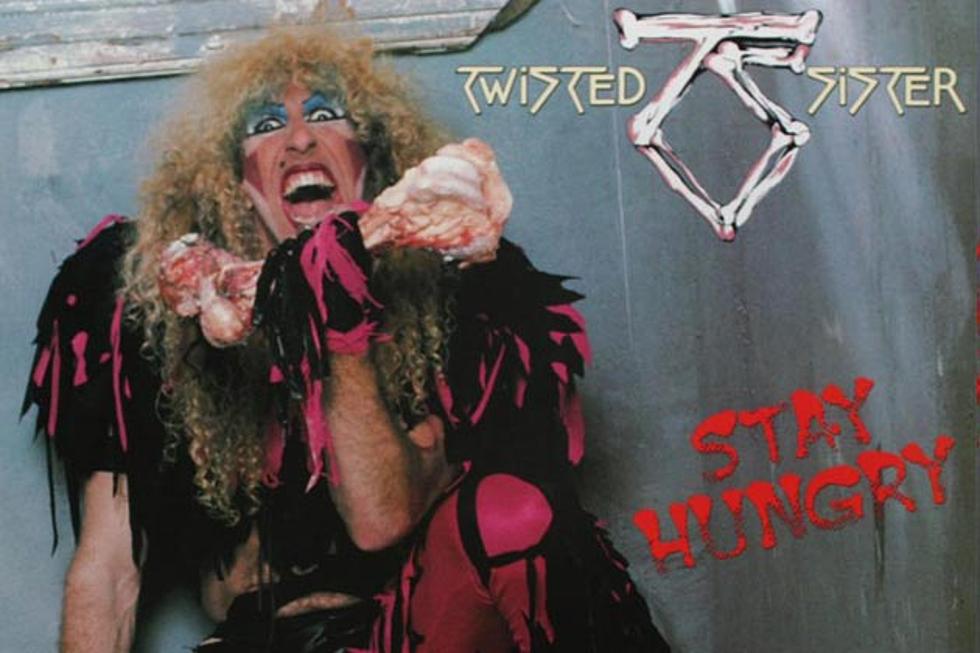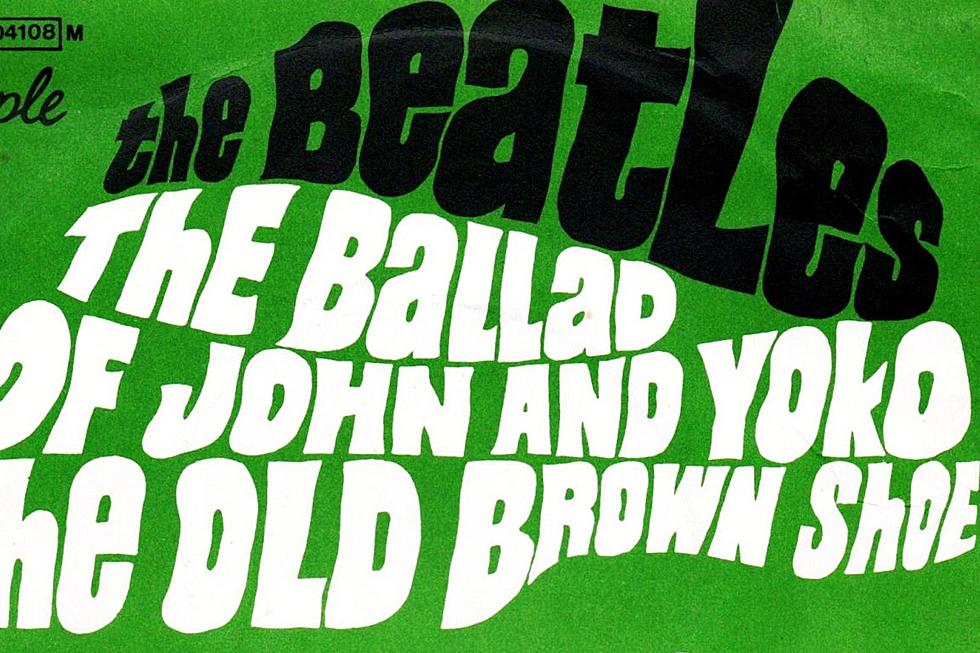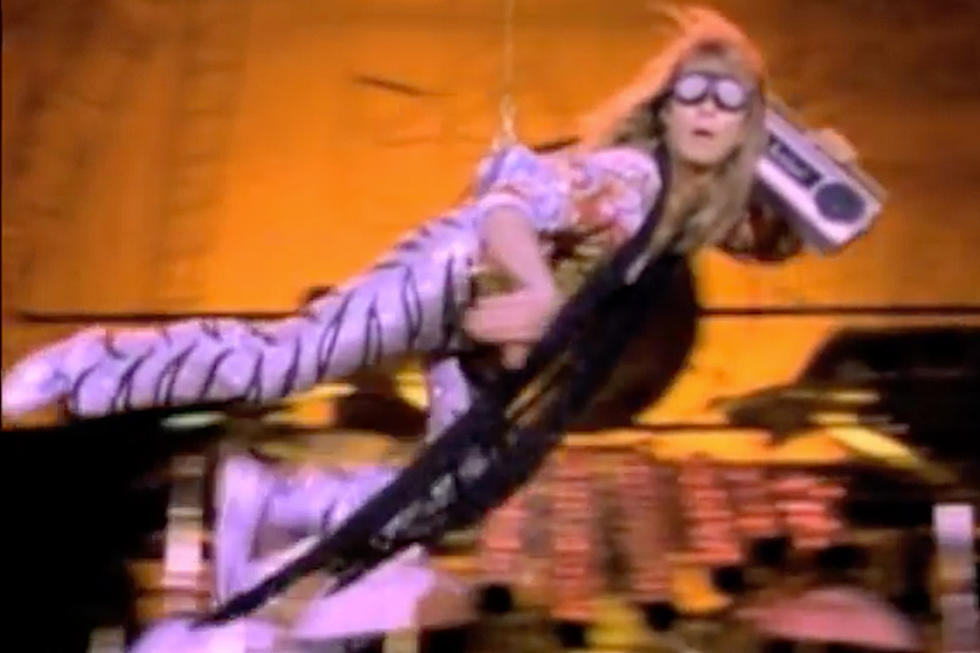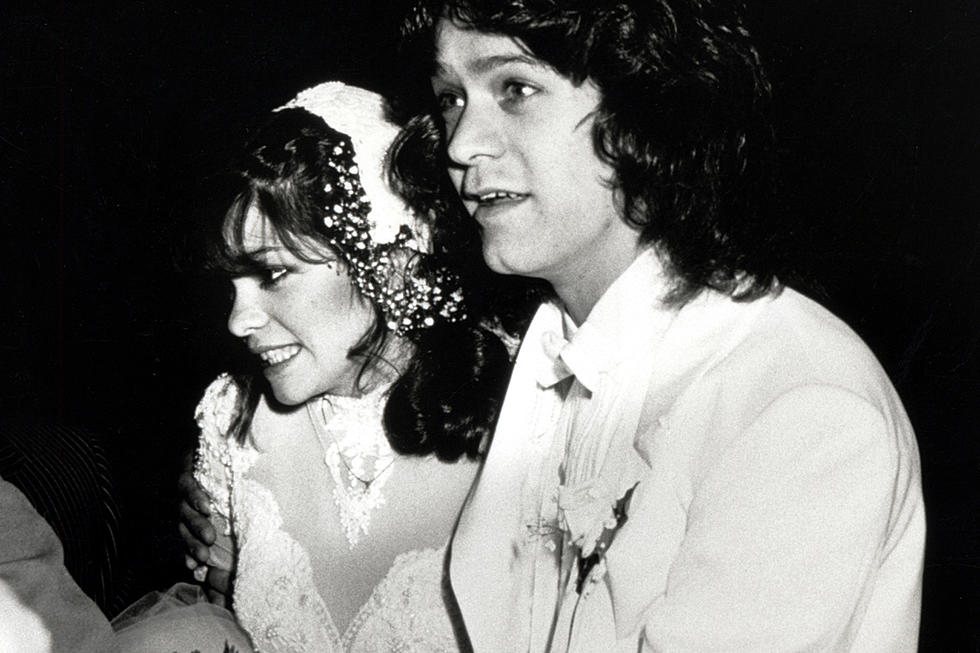
40 Years Ago: Twisted Sister Hits It Big With ‘Stay Hungry’
Twisted Sister lived through just about every rock 'n' roll cliche in an 18-month span in the mid-'80s, when the Long Island-based quintet went from an overnight sensation (though one that was a decade in the making) to a band fractured by internal strife and overexposure – albeit overexposure of a far different kind than any band had ever before experienced.
The breakthrough triple-platinum album Stay Hungry, issued on May 10, 1984, actually provided a hint at the turmoil to come. Still, the days and weeks leading up to the album’s release were filled with a knowing, once-in-a-lifetime sense of optimism that the band (singer Dee Snider, guitarists Jay Jay French and Eddie Ojeda, bassist Mark Mendoza and drummer A.J. Pero) was about to hit it big.
“There were a lot of elements going into the record that kind of gave you a feeling that, with the right record, the timing was right for us to finally make it,” French told UCR.
READ MORE: Ranking Every Twisted Sister Album
French, who is also Twisted Sister’s manager, said the band was confident not only in the songs on Stay Hungry: It was a tight, nine-song, 37-minute set that managed to touch on every facet of hard rock, from the anthemic likes of "We're Not Gonna Take It," "I Wanna Rock" and "S.M.F." to the textbook power ballad "The Price" and the sinister "Burn In Hell" and "Horror Teria (The Beginning)" – but also in the momentum it had built with 1983’s You Can’t Stop Rock 'N' Roll, which had sold more than 100,000 copies in its first 11 months in stores.
Most importantly, after filming a concept video for the title track to You Can’t Stop Rock 'N' Roll. French and his bandmates – and Snider, in particular – knew they were going to exploit the burgeoning reach and power of MTV. “[Director] Arthur Ellis taught me that the visual element for a song didn’t have to be exclusively traditional performing,” Snider wrote in his autobiography Shut Up and Give Me the Mic. “You could do a lot with this medium.”
The video for the lead single, "We’re Not Gonna Take It,"' proved it. Snider and director Marty Callner came up with the plot, in which an overbearing father gets his comeuppance after berating his guitar-playing son. Snider told Callner he wanted to base the father on National Lampoon's Animal House heel Douglas Neidermeyer, to which Callner suggested they actually contact the man who played Neidermeyer – actor Mark Metcalf. Within days, Metcalf agreed to reprise his famous role in the video. “For an outcast kid from Long Island to have his crazy ideas brought to life like that was almost overwhelming,” Snider wrote.
Watch Twisted Sister's 'We're Not Gonna Take It' Video
An Expanded Video Helped Break the Band
So, too, was the response. "We’re Not Gonna Take It" was already building at rock radio when the video premiered on MTV. (Snider described hearing the song at the same time on three different stations in New York.) The network initially hated the video, because it spent almost three minutes setting up and showing the clash between Neidermeyer and his son (played by Callner’s son, Dax) before the song began – which only ran 3:38. But the clip became an instant classic and catapulted Twisted Sister into the mainstream.
“Things took off so fast,” French continued. “The record came out in May. By July, you just knew. The shows were getting bigger. More kids were showing up. We did a record signing at a Tower Records – I think in Texas – [where] 4,000 kids showed up. You kind of knew that we were getting huge.”
In mid-August, just as Stay Hungry surged past 500,000 copies sold, Twisted Sister had its triumphant homecoming when it opened for Dio at Long Island’s Nassau Coliseum. Instead of receiving gold records on stage, though, Metcalf – in character as Neidermeyer – presented band members with gold medals in homage to the 1984 Olympics, which had just taken place in Los Angeles. Such a moment was particularly satisfying for Twisted Sister, which had been rejected multiple times by every record label in the land before finally signing with Atlantic in 1982. “One of those 'Ha! I showed you' kind of things,” French said. “It was nice to be able to say that.”
Twisted Sister’s momentum continued to build with the release of the "I Wanna Rock" single and video, which was a sequel to "We’re Not Gonna Take It" with similar homages to Animal House. MTV had no problem this time with a long non-musical introduction, and aired the video in heavy rotation for months. But Twisted Sister was already finding out the perils of instant fame.
Snider couldn’t go anywhere on Long Island without being besieged by fans. Metcalf sparred with Snider and Callner during the making of the "I Wanna Rock" video. And as Snider’s profile increased, so did the tensions within the band. Snider wrote, “The success we were having as a band – and I was having as a creative and ‘star’ personality – were fertilizer to those seeds of discontent. Negative feelings were flourishing.”
Watch Twisted Sister's 'I Wanna Rock' Video
How Twisted Sister Rebounded After a Downward Turn
Soon, the band would begin to lose faith in Atlantic Records. Members had already spent most of the Stay Hungry sessions arguing with producer Tom Werman, who had been hired by Atlantic as the album producer. Snider wrote in his autobiography that he had to beg Werman to include critical moments like "We’re Not Gonna Take It," "I Wanna Rock" and "The Price" on the final album. After the huge successes of the first two, Twisted Sister figured it was headed for a third smash when "The Price" was released in early 1985. Instead, the single petered out, failing to chart on the Hot 100 and barely reaching the Top 20 on the mainstream rock charts.
“I’m not sure what happened with Atlantic Records,” French said. “When Motley Crue did "Home Sweet Home," "The Price" should have been that big. And they kind of gave up on it and decided to get to the next album.” Alas, by the time that next album, Come Out and Play, was released in November 1985, Twisted Sister’s career had begun trending downward.
The band was already reeling from its battles with the Parents Music Resource Center, which had identified "We’re Not Gonna Take It" as one of the “Filthy 15” songs it found particularly objectionable. The final, irrecoverable blow was delivered when the lead single off Come Out And Play – a cover of "Leader of the Pack" by the '60s girl group the Shangri-Las – fizzled.
When Snider left Twisted Sister in October 1987, a few months after the release of Love Is for Suckers, it was inconceivable that the splintered band would someday reunite, never mind remain together so many years later. “I don’t think rock bands were supposed to last this long,” French said. “The Beatles were like seven, eight years. Now you’ve got AC/DC and Kiss and Judas Priest and Motley Crue and ZZ Top and Rush. It goes on and on. We’re all gonna freakin’ die as rock musicians.”
YouTube has provided an invaluable assist in keeping Twisted Sister in the public eye as has the savvy marketing of Snider and Twisted Sister’s most famous songs: "I Wanna Rock" and "We’re Not Gonna Take It" has been viewed tens of million times.
Snider hosted a syndicated radio show and was a regular on reality shows, while "We’re Not Gonna Take It" and "I Wanna Rock" have been used in commercials promoting everything from hotel chains, department stores and rental car companies to vacuum cleaners and allergy medication. The so-called "objectionable content" of Stay Hungry now seems downright G-rated and serves as an innocent and fresh-sounding reminder of simpler times for the band’s 40- and 50-something fans, most of whom can recite the songs as well as Neidermeyer’s screeds word-for-word.
“People care; that’s what matters,” French said. “People care about something we created. You know how humbling that is?”
The '80s Most Outrageous Rock Fashion
Gallery Credit: Nick DeRiso
Dee Snider's Spouse is One of Rock's Hottest Wives
More From KYBB-FM / B102.7










